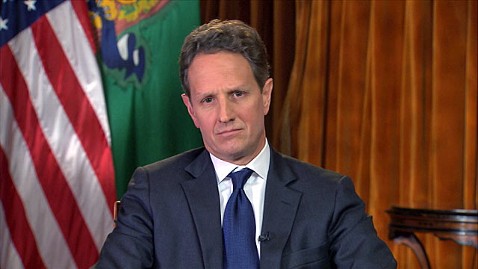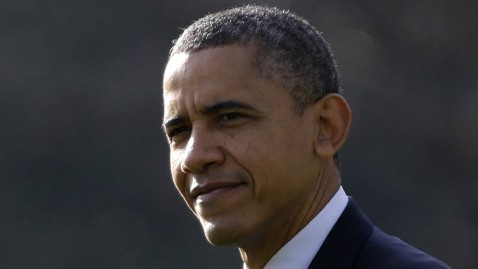WASHINGTON: Lead White House negotiator Timothy Geithner insisted Sunday there would be no deal to avert the "fiscal cliff" unless Republicans allowed tax rates on the wealthiest Americans to rise.
Talks to avoid the dreaded "fiscal cliff" are at a dangerous impasse after President Barack Obama's opening gambit in the high-stakes negotiations was shot down by leading Republicans on Thursday as "ridiculous."
Markets are jittery as, without a deal by the year-end, a poison pill of tax hikes and massive spending cuts, including slashes to the military, comes into effect with potentially catastrophic effects for the fragile US economy.
Budget negotiations go right to the heart of ideological differences between Democrats and Republicans on the size and scope of government, but the biggest sticking point has clearly been on tax rates for high-earners.
Obama campaigned on a platform of raising taxes on individuals who make more than $200,000 per year and on families that rake in more than $250,000, as a way of raising extra revenue to tame the deficit.
Republicans insist that raising taxes on the wealthy would be counter-productive, hurt small business owners, slow economic growth and dampen job creation.
"There's not going to be an agreement without rates going up. There's not," Geithner told CNN's "State of the Union" program, saying the ball was in the Republicans' court to propose a counter-offer to the Obama plan.
Republicans said they are ready to raise more revenue from wealthy Americans, but want to do so by closing tax loopholes and limiting deductions rather than by raising income tax rates.
"Increasing tax rates draws money away from our economy that needs to be invested in our economy to put the American people back to work," Republican House Speaker John Boehner said on Friday. "It's the wrong approach."
Geithner, the tough-talking Treasury Secretary chosen as Obama's pointman in the talks, took to the Sunday morning news shows to step up pressure on Republicans to propose a plan that embraces the spirit of compromise.
"What we did is put forward a very comprehensive, very carefully designed mix of savings and tax rates to help us put us back on a path to stabilizing our debt, fixing our debt and living within our means," he said.
"We don't expect them to like all of those proposals. But all we can do is lay out what we believe in and then ask them to come back to us and tell us what they would prefer to do."
Geithner said the two sides were still "far apart," but expressed hope they were moving closer together.
Former Republican president George W. Bush introduced across-the-board tax cuts that were framed as "temporary" measures back in 2001 and 2003.
The top income tax rate, which now stands at 35 percent, will automatically revert to 39.6 percent at the beginning of 2013 unless there is a new budget deal.
Obama is urging the Republicans to extend the Bush-era tax cuts for all but the top bracket, roughly 98 percent of Americans, and campaigned on this promise before winning re-election on November 6.
Republican soul-searching in the wake of Mitt Romney's decisive electoral defeat has seen several leading figures indicate a willingness to accept a deal that includes more revenue, but only by ending loopholes in the tax code and in return for cuts in funding to Democrats' beloved welfare programs.
"They're in a hard place. And they're having a tough time trying to figure out what they can do, what they can get support from their members for," Geithner said.
"If they are going to force higher rates on virtually all Americans because they're unwilling to let tax rates go up on 2 percent of Americans, then, I mean that's the choice they're going to have to make," said Geithner.
"But they'll own the responsibility for the damage."
The year-end deadline is the result of legislation passed when Republicans and Democrats failed to reach a previous long-term deficit and budget deal, and was meant to concentrate minds of lawmakers and spur compromise.
The parties are also feuding about where to cut expenditures, with some Republicans opposed to any trimming of the military budget and Democrats guarding social safety net entitlement programs.
- AFP/fa



















